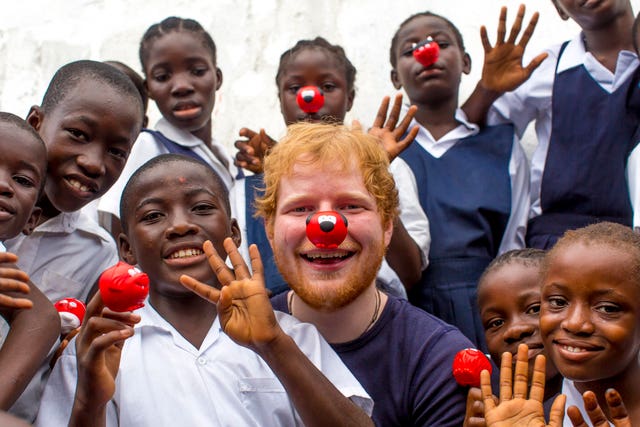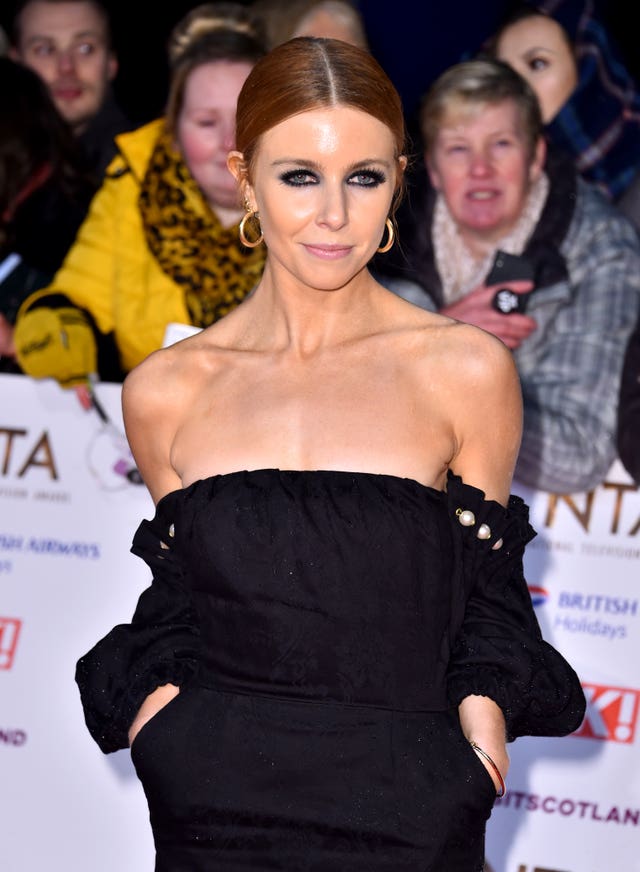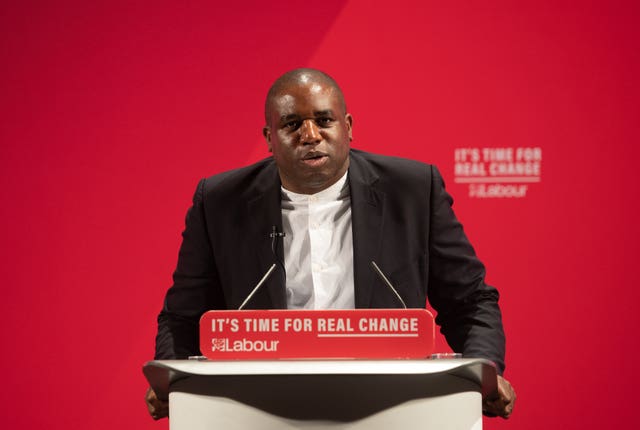Lenny Henry addresses Comic Relief’s decision to scrap Africa celebrity appeals
The charity has committed to hiring local filmmakers and photographers.

Sir Lenny Henry has praised Comic Relief after it said it would no longer send celebrities to Africa, but admitted the charity had been “pushing on the same button for too long”.
Comic Relief has announced it will hire local filmmakers and photographers for its appeals on the continent following criticism of “white saviour” celebrities.
Labour MP David Lammy last year accused Strictly Come Dancing star Stacey Dooley of perpetuating “tired and unhelpful stereotypes” after she visited Africa for a Comic Relief video appeal.

Speaking during an online Q&A with the charity, he said: “It takes a while to learn something. You are in learned behaviour for quite a long time and then there is a transition point when you go, ‘Oh actually, there are other ways to elicit sympathy.’ There are other ways to elicit someone going, ‘Actually, I am going to help with this.’ There are other ways and maybe we have been pushing on the same button for too long.
“It has been a while since David Bowie held up that picture at Live Aid, over 30 years, and it’s time to think of another way of telling those stories now and eliciting mutual love and respect and care.”
The comedian, who co-founded Comic Relief in 1985 with filmmaker Richard Curtis, said it was important to work with “indigenous filmmakers who can tell stories with dignity, integrity and lived experience”.
He added: “Once you have people telling stories from their own experience, that will change. There are so many filmmakers coming out of the third world.

Sir Lenny also recalled visiting African countries with Comic Relief and being the only black member of the crew.
“It was interesting,” he said.
“When I went to film in places in Africa like Kenya or Uganda or Burkina Faso or whatever, I would usually be the only black person in the team.
“Everybody else would be white and everybody was groovy – no bad people in this – everybody was groovy.”

The panel also saw June Sarpong, the BBC’s director of creative diversity, praise Comic Relief for its commitment.
She said: “I think it is brilliant that this is happening and, actually, I have to say that Comic Relief received a lot of criticism from various groups and parties.
“It’s wonderful to see that they have heeded some of those messages, but also found a creative way of solving this issue.”
Sarpong added: “Who knows what kind of talent will be developed and found as a result of this?
“We may have the next Richard Curtis coming from Africa. I look forward to it. I think it is going to be an exciting thing so bring it on.”
Following controversy over Comic Relief’s use of celebrities, all African appeal films for Red Nose Day 2021 will be led by local filmmakers for a “more authentic perspective”.
In a statement, the organisation said celebrities who have led films on camera have been “highly successful” and they will “continue to play a big part presenting” Red Nose Day TV shows.
Comic Relief said it is finalising new “story telling guidelines”, which as well as local filmmakers will include a stronger focus on “grassroots” workers in appeal films.
The charity also said it will work with media organisations across Africa to raise “awareness of wider narratives across the continent” and promised to make “every aspect” of production “more diverse and inclusive”.
Comic Relief said it has invested nearly £6 million in black-led and minority-led organisations across the UK.





